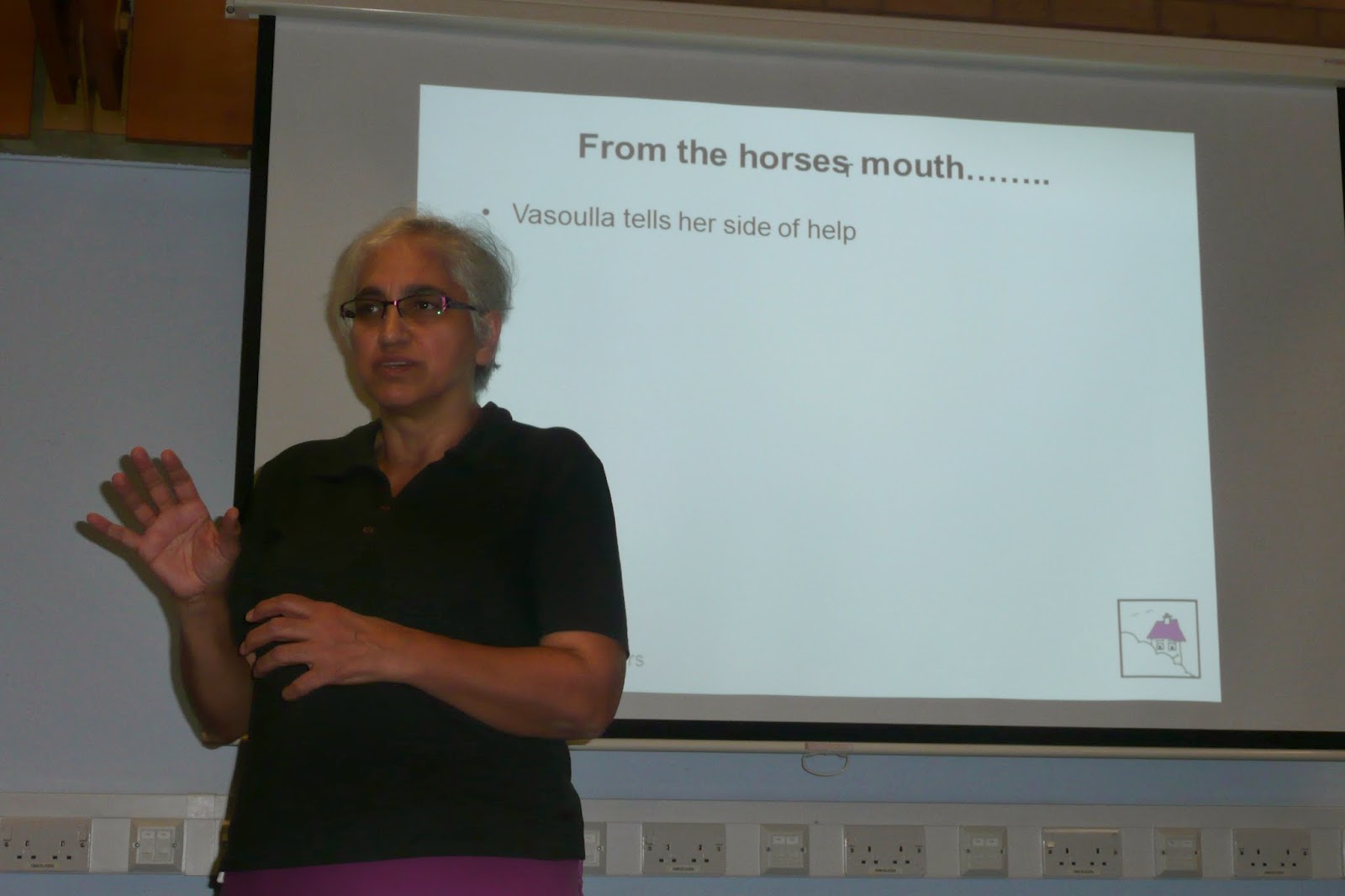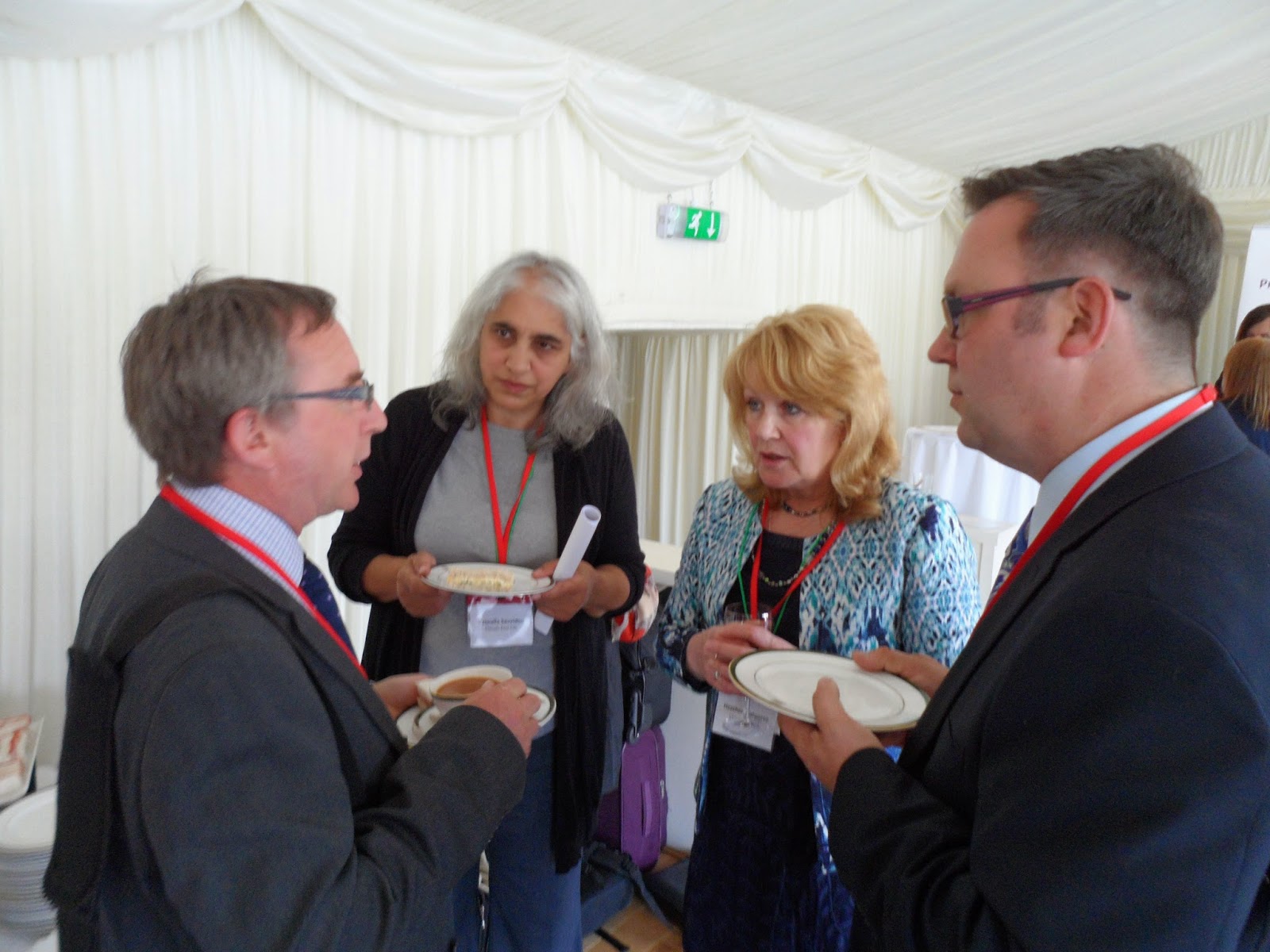You can now follow @HoardingIceBreakerForm on Facebook
 Feeling unwell, overwhelmed or at the end of our tether because of clutter, disorganisation or hoarding is a much more common, debilitating and potentially life-changing problem than you might think.
Feeling unwell, overwhelmed or at the end of our tether because of clutter, disorganisation or hoarding is a much more common, debilitating and potentially life-changing problem than you might think. Chronic Disorganisation
Chores that some people find easy can be a nightmare for others - like filing paperwork, time-keeping, meal-planning, money management or quickly finding things that have been put away in that safe place - so safe you can't remember where it is!
Juggling a busy lifestyle or having to cope with expected or unexpected life events doesn't help, and add to that an existing health condition - or one that you may not even know you have - and it can become overwhelming and a recipe for disaster.
We regularly hear of people who feel so anxious or embarrassed about their chronically disorganised homes that they won't allow people in - even when they have no heating, hot water or electricity, and are in desperate need of help and support from trades people such as plumbers, electricians or heating engineers.
It can affect a person's health, their relationships and their ability to function normally - in their home, in their personal life and sometimes at work too.
Hoarding behaviours
And then there's the more extreme end of the clutter spectrum - hoarding behaviours - which involves three main problems:
- Excessive and compulsive acquisition of items - some of which may appear to be useless or of limited value to many people
- Extreme difficulty letting them go
- Having so many possessions that it prevents or precludes the use of living spaces for what they were designed for
In June 2018 the World Health Organisation (WHO) classified Hoarding Disorder as a mental illness, although only specialists will be able to diagnose it.
It's estimated that between 2%-6% of the population exhibit hoarding behaviour. And in England* The Care Act 2014 classifies hoarding as potentially being self-neglect. Which means GPs and agencies coming into contact with hoarders should report patients exhibiting hoarding behaviours who are self-neglecting to the local authority, so that it can be investigated by the local Safeguarding team.
*There may be slightly different arrangements for Scotland and Wales
Concerned relatives, friends & neighbours
Especially as excessive amounts of clutter creates high safety risks, not only for the people living in a property, but also neighbours and public safety services such as the Fire & Rescue Service (FRS) who get called out in the event of an emergency.
When someone's safety, health or wellbeing is affected, it's time to take action.
The ice-breaker form helps people overcome the awkwardness or embarrassment of not knowing where to start the conversation about health problems related to extreme clutter, hoarding and disorganisation.
It's important to note that GPs assess and treat patients all the time for conditions which can make organising difficult, such as:
The ice-breaker form helps people overcome the awkwardness or embarrassment of not knowing where to start the conversation about health problems related to extreme clutter, hoarding and disorganisation.
It's important to note that GPs assess and treat patients all the time for conditions which can make organising difficult, such as:
- Autism Spectrum Condition (ASC - including Asperger's)
- Attention Deficit Hyperactive Disorder(ADD or ADHD)
- Fybromyalgia
- According to the NHS website, this long-term condition causes pain all over the body, as well as fatigue (extreme tiredness); increased sensitivity to pain; problems with mental processes (known as "fibro-fog") such as problems with memory and concentration; difficulty sleeping and Irritable Bowel Syndrome (IBS)
- OCD
- Dyslexia
- It's not just about problems with reading, writing and spelling - symptoms can also include poor organisation and time-management
- Dyspraxia - affects movement and co-ordination
- Anxiety
- Depression
- Brain tumours and brain injuries
- Stress-related illness
Click here to download a list of examples of some of the medical conditions and other contributory factors that may be encountered when working with people who have clutter, chronic disorganisation or hoarding issues.
The idea is that people download the ice-breaker form, tick the relevant boxes and present it to their GP, or other medical professional.
 |
| The Ice-Breaker form can be downloaded from these websites |
- Hoarding UK - the UK charity for people affected by hoarding, and organiser of the UK's first National Hoarding Conference in May 2018
- Help for Hoarders - a website for compulsive hoarders and their families
- Clouds End CIC - the UK's first social enterprise for helping hoarders, founded by hoarding campaigner Heather Matuozzo, who was a consultant to the BBC for their 2012 and 2013 documentaries, “Britain’s Biggest Hoarders” (the 2012 documentary won the MIND Media award).
- Hoarding Disorders UK CIC - a Berkshire-based Community Interest Company co-founded by Jo Cooke, author of the insightful and compassionate go-to book "Understanding Hoarding" that has deservedly received numerous 5* reviews on Amazon.
- Life-Pod Clutter Management CIC - a Scottish social enterprise founded by pioneering chronic disorganisation and hoarding behaviour specialist and trainer Linda Fay - organiser of the International Hoarding, Health & Housing Conference in Edinburgh in October 2018
- Hoarding Awareness Week - the annual event (originally started by the Chief Fire Officers Association in 2014) to raise awareness of hoarding and reduce the stigmas associated with it.
□
It’s hard for me/them to talk about this
□
I/they feel alone and need support
□
Other people don’t seem to understand
□ I/they
feel distressed, and/or indecisive about what to do to make things better
□ I’ve/They’ve
become secretive/ withdrawn about this situation
□
My/their self-confidence/self-esteem is
very low
□
I/they feel very uncomfortable about/reluctant
to change
□
It can be hard for me/them to live
normally/work/study/travel/pay bills/make or keep friendships and relationships
□
I/they have been notified by the Local
Authority/my Landlord/other agency that
action will be taken if I/they don’t do something soon (explain which agency – eg. bank, landlord, Environmental Health,
Family Liaison, boss, etc)
□
Family/friends/neighbours have taken (or
have threatened to take) matters into their own hands
□
I/they don’t feel I/they have anyone to
talk to who would actively listen empathetically and/or non-judgementally to
my/their concerns
□
I feel out of my depth with my knowledge of
how to help and/or support my relative/ friend/colleague, or myself
The form also includes an extract from the Clutter Image Rating Scale on the back, as the FRS like to know whenever Level 5 or above is reached, so they can visit and do a Safe & Well visit (also known as a Home Fire Safety visit) and discuss the risks with the resident, advise on actions that can be taken to make things safer, including emergency evacuation plans and perhaps fitting free smoke detectors.
What can the GP do to help?
Helping people whose health has been affected by chronic disorgansiation and/or hoarding is rarely a quick fix.
Helping people whose health has been affected by chronic disorgansiation and/or hoarding is rarely a quick fix.
Recently we heard about a case where someone (who exhibited hoarding behaviours and had all sorts of health problems due to their complex situation) had completed the ice-breaker and ticked every single box except one.
The GP used the ticked responses in the questionnaire to ask further questions about the patient's symptoms and difficulties, which gave him a better understanding of the problems the patient was facing - which included potentially being evicted.
The GP referred the patient for blood tests; prescribed treatment for various health problems; referred them for counselling for mental health problems (including anxiety and depression), and an assessment for Autism and ADHD. And because the patient was self-neglecting they were also referred to the local Adult Safeguarding Board.
A multi-agency team was formed, which enabled the patient to get advocacy help and support, and lead to intervention from specialist Professional Hoarding Practitioners.
The Professional Hoarding Practitioners used an holistic and practical person-centered approach to empower the patient/client to make decisions which resulted in the number of possessions gradually being reduced, and the safety risks associated with the cluttered property being significantly reduced too - to the extent that the eviction was cancelled.
The patient continues to have therapy and work with the multi-agency team which is supporting them. As a result, the patient's anxiety levels have reduced, their health has improved and they are now attending a hoarding support group.
Act now, before your health deteriorates any more....
If you or someone you know feels unwell as a result of clutter or disorganisation and don't know who to turn to, please don't poo-poo their difficulties and tell them to snap out of it - it's likely to make them feel worse.
Instead, why not suggest that they click here to download this simple to use ice-breaker document, fill it in and hand it to their GP at their next appointment?
Because life's too short for your health to be ruled by clutter or disorganisation.
SURVEY: Please let me know how you get on using the Ice-Breaker form by completing this survey (click here).
Thank you.

COME AND SAY "HELLO"
Past events:
We're excited be having a stand at the following events:
- Fastminds Neurodiversity Festival - 14th September 2018 - The Empire, 161a Clarence St, Kingston, KT1 1QT
- Walton-on-Thames Fire Station Open Day - Saturday 15th September 2018
- The National Hoarding Conference on 14th May 2018, at the start of National Hoarding Awareness Week.
Originally published July 2015 - updated May 2018, June 2018, August 2018
Click here to return to Rainbow Red's website
Click here to return to Rainbow Red's website















